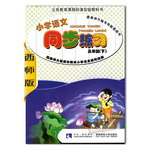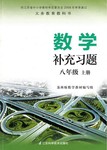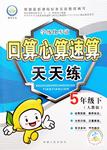题目内容
About 97% of the world's water is salty and is found in our oceans and seas. But, as we can't drink seawater, how can it be important?
Every part of our seas and oceans contains an amazing number of animals and fish that live at different ocean depths. Most of the different species of animals and fish depend on simple plants for their food. These simple plants called algae (海藻) drift near the surface of the ocean and use sunlight to turn carbon dioxide and water into food and oxygen. In fact, algae produce over half of the oxygen people breathe. How important seawater is!
Each plant or animal in our seas and oceans is an important link in a food chain. The algae are eaten in large amounts by microscopic animals, which are in turn consumed by larger animals. These food chains are delicately balanced.
The bad news about the food chains in the oceans is that they are under threat because of man. People once thought that the oceans were so big that it didn't matter if we dumped rubbish into them or caught huge quantities of fish and whales for food. But we now know this is not true and fish stocks in the oceans have started to drop.
Thankfully, the world is taking steps to protect the future of our oceans by introducing international agreements to protect marine habitats. Most countries have introduced fishing restrictions to protect fish stocks in the oceans and new techniques are being pioneered to cope with pollution. Finally, the importance of protecting oceans is being made known to more people. This is just the beginning of a long process to protect the oceans for our future. We depend on the oceans for fish which are an important part of the human diet. How important seawater is!
6. Which of the following is the proper order of the food chain?
A. small animals→algae→microscopic animals→large animals→man.
B. algae→microscopic animals→large animals→larger animals→man.
C. small animals→algae→large animals→microscopic animals→man.
D. microscopic animals→algae→large animals→larger animals→man.
7. People used to think that the rubbish thrown into the sea ________.
A. wouldn't harm the fish in the sea
B. would change the balance of the food chain
C. would be broken down in the sea
D. wouldn't do much harm to the sea
8. From the passage, we learn that ________.
A. most fish and sea animals live at the surface of the seas
B. it is very difficult to break the balance of a food chain
C. excessive fishing has caused the decrease in fish stock
D. it won't be long before the problems concerning oceans will be solved
9. Which of the following is NOT a way being used to protect oceans?
A. The use of international agreements.
B. Forbidding fishing to protect fish stocks.
C. The use of new techniques.
D. Raising people's awareness of the need to protect oceans.
10. What would be the BEST title of the passage?
A. The importance of seawater.
B. Life in the oceans.
C. How to protect food chains.
D. How to deal with seawater pollution.
6. 解析:选B。细节推断题。根据第二、三段内容可知答案。
7. 解析:选D。细节推断题。根据第四段中的“People once thought that the oceans were so big that it didn't matter if we dumped rubbish into them...”可知人们过去以为海洋那么大,扔进一点垃圾不会对海洋造成多大的危害。
8. 解析:选C。细节推断题。根据第四段中的“... fish stocks in the oceans have started to drop”可知大量捕捉鱼类肯定会造成鱼类储量的下降;根据第二段首句可知答案A错误;根据第三段中的“These food chains are delicately balanced”可知答案B错误;根据最后一段中的“This is just the beginning of a long process to protect the oceans for our future”可知答案D错误。
9. 解析:选B。细节推断题。根据最后一段可知很多国家通过限制捕鱼数量来保护鱼类,但不是禁止捕鱼;其他几种措施在最后一段中都可以找到。
10. 解析:选A。主旨大意题。根据文章的第一段,以及第二段和最后一段的末句可知文章的中心是说明海水的重要性。

 同步练习河南大学出版社系列答案
同步练习河南大学出版社系列答案 同步练习西南师范大学出版社系列答案
同步练习西南师范大学出版社系列答案 补充习题江苏系列答案
补充习题江苏系列答案 学练快车道口算心算速算天天练系列答案
学练快车道口算心算速算天天练系列答案